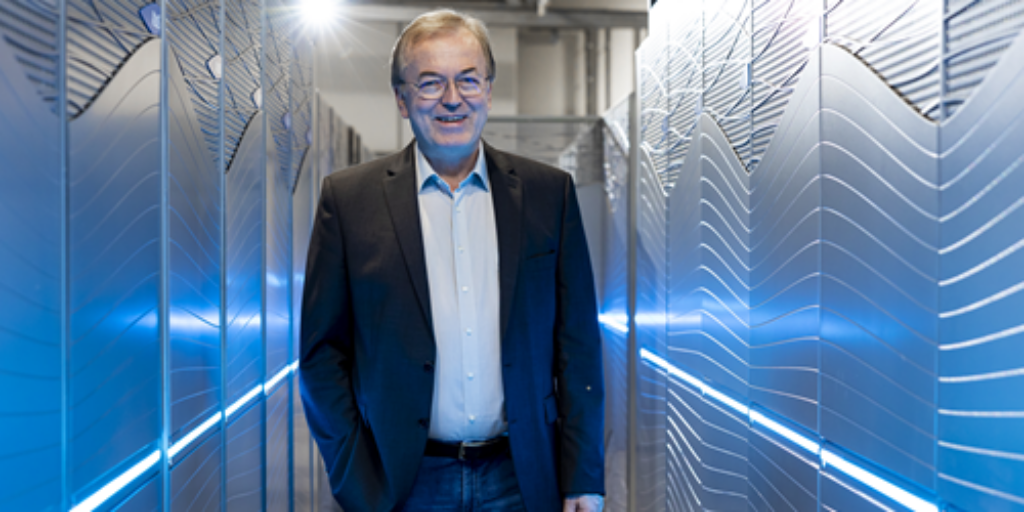This morning, Eviden made it official: it has been awarded a contract by Jülich Supercomputing Centre in Germany to build the modular data center to host the EuroHPC JUPITER supercomputer, Europe’s first exascale system. This is not surprising because last October it was announced that Eviden, the advanced computing arm of French technology company ATOS, will lead a consortium to manufacture Europe’s first exascale-class supercomputer, called JUPITER, for JSC.
Eviden said it will bring together a set of about 50 pre-built and interchangeable modules – including 20 IT containers, 15 power feed containers and 10 logistic containers (lobby, workshop, warehouse etc.) – over 2,300m² to form a turnkey data center.
The modular approach is intended to increase flexibility and agility “by facilitating smoother updates or replacement of single modules, independently from the rest of the system.
“Unlike current systems with which the dismantling of an obsolete system and upgrading the data center to support new technologies can take weeks or month and incur long unavailability,” Eviden said, “with this system all it takes is to remove a module and replace it by one featuring an upgraded IT configuration. The same is true for the power sub-system and the logistic area.”
Eviden said this “HPC solution with costs cut by three and a delivery time reduced by 50 percent. Manufactured in Eviden’s factory in Angers, France, the JUPITER HPC racks will be integrated into the containers along with cooling, power, networking and cabling directly on the factory floor, before client delivery. This speeds up the installation process and reduces the risk of default discovery once on the customer’s site, according to Eviden.

As the overall eco-efficiency of any HPC system has become a key concern, this modular data center will also help reduce energy consumption, improve the recycling of the material used and will globally improve the energy efficiency. Through Eviden’s free cooling technology integrated with the supercomputer’s patented direct liquid cooling, the heat generated by the Exascale system will also offer an improved capacity to reuse within the JSC.
The modular data center will host JUPITER, which is scheduled to be installed this year. The system will be comprised of two partitions: a scalable “Booster” module for particularly compute-intensive problems, supported by 24,000 NVIDIA Grace Hopper (GH200) GPUs; and an Arm-based CPU “Cluster” module for complex, data-intensive tasks. The Cluster module will be based on first generation SiPearl microprocessor, Rhea1 using the Arm Neoverse V1 platform. Rhea1 will sample this year.
The modules can solve scientific problems separately or together, depending on workload requirements.

“With over 90 exaflops at 8 bits, we will have perhaps the fastest AI supercomputer in the world for suitable AI applications,” said Dr. Thomas Lippert, director of the JSC (pictured above).
JUPITER compute nodes will be connected to a high-performance network using NVIDIA Mellanox InfiniBand technology. While the booster GPU module will be supplied by Eviden, the cluster module is equipped with new European ARM CPUs from SiPearl and is supplied by the German company ParTec, which also is responsible for the dynamic modular operation of the system.




